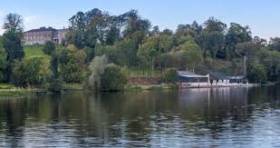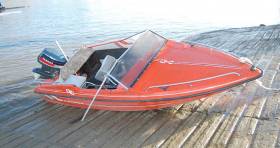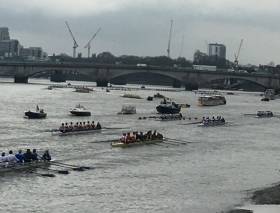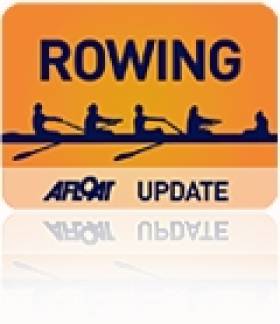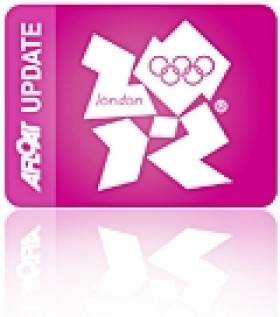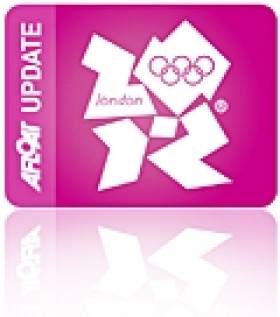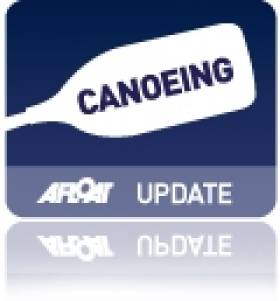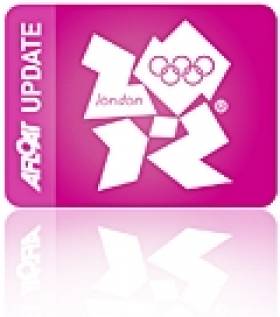Displaying items by tag: London
Enniskillen Shine at Schools' Head of the River in London
#Rowing: Enniskillen’s girls’ and boys’ eights both shone at the Schools’ Head of the River in London today. Strong, gusting winds made conditions difficult – the numbers allowed to compete were cut because of this – but the Enniskillen RBC girls’ championship eight took fourth, while the boys’ championship eight were sixth. The boys’ crew placed sixth overall, 32.8 seconds behind the winners, Shiplake College.
Schools’ Head of the River, London (Irish interest)
Boys – Overall: 1 Shiplake College A Boys’ Championship Eight 16 min 36.6 seconds; 6 Enniskillen RBC Championship Eight 17:09.4.
Girls – Championship Eight: 1 Henley RC 18:44.2; 4 Enniskillen RBC 18:57.9.
#Speedboat - A man has been sentenced to six years in prison for the manslaughter of a woman who died after his speedboat crashed in London three years agp.
According to The Guardian, Jack Shepherd (31) was absent from sentencing at the Old Bailey after skipping bail, and police currently have a warrant out for his arrest.
The jurors heard that in December 2015, Shepherd took his date Charlotte Brown (24) to his speedboat on the River Thames while both were under the influence of alcohol, and allowed her to drive the vessel at “full throttle”.
The boat crashed into a submerged log before capsizing and throwing both Shepherd and Brown into the river.
Brown showed symptoms of hypothermia and cardiac arrest when she was recovered from the water, and was pronounced dead later.
Neither Brown nor Shepherd was wearing a lifejacket, and Shepherd — who had previously been pulled over a number of times for speeding on the river — admitted in a police interview that he did not inform Brown, who had no boating experience, about the safety devices on board.
Police also said the speedboat itself had a number of defects, including a ‘wobble’ in its steering.
Mail Online has video recorded by Brown on her phone of part of the pair’s speedboat trip, in which she can be heard commenting that Shepherd was “going so fast”.
Judge Richard Marks QC, in his sentencing remarks, said Shepherd had a “totally cavalier attitude to safety”. The Guardian has more on the story HERE.
#Rowing: Enniskillen RBC had two outstanding results at the Schools’ Head of the River in London. The girls’ eight won their category, the First Eights, and were fifth overall. The boys’ eight finished second in the equivalent category behind Bedford. When the revised results were published this placed them 10th overall, the best placing by an Irish crew at the event since 2010, when Bann Rowing Club finished ninth and 2011 when Portora (now Enniskillen) matched this. Enniskillen finished seventh in an event shortened due to weather in 2017.
Schools’ Head of the River, London (Selected Results; Irish interest; REVISED)
Men, Schools First Eight: 1 Bedford 17 min 15.1 sec; 2 Enniskillen Royal Boat Club (S Balcombe, R Mills, M McBrien, P Murphy, O Donaghy, J McDade, J Kennedy, N Timoney; cox: R Farragher) 17:18.4; 16 Methodist, Belfast A 19:10.2
First Junior 16 Eight: 9 Methody 19:44.4.
Sculling, Quadruple – Championship: 17 Methody 19:15.6.
Women, Schools First Eight: 1 Enniskillen RBC (T McComb, A Corry, V Wilson, C Leonard, Z McCutcheon, M Donnelly, J Long; C Fee; cox: S Dolan) 19:01.3; 13 Methody 21:49.7.
UK Boaters 'Surprised To Learn' of Irish Marina Facilities
There's been a big shout out for the Irish Marine Federation (IMF) stand at this week's London Boat Show from UK boaters who have been 'surprised to learn' of the range of sailing club and marina facilities available around the Irish coastline. But there have also been expressions of thanks from Irish visitors to the International Show at Excel who are delighted to see Ireland showcased as a maritime destination.
According to stand executive Ciara Dowling, the biggest surprise among some UK boaters visiting the stand (F046) has been the map of Ireland showing over 60 marina locations. Many visitors, she says, simply had not known of the existence of many Irish marina, jetty and pontoon locations, a situation the Irish Marina Federation are keen to rectify.
UK boater feed back from the show so far indicates the close proximity of Wales to Dublin and Ireland's attractive berthing rates compared with the current high value of Sterling against the Euro could be a factor to entice UK boaters to cruise Ireland and even moor boats here in the longer term.
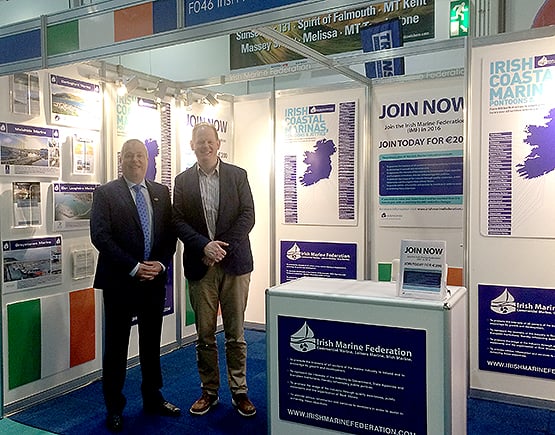
Gerry Salmon of MGM Boats and Paal Janson of Dun Laoghaire on the first ever IMF stand at this week's London Boat Show in Excel.
Nine Injured In Thames Cruise Collision
#TowerBridge - BBC News reports of nine people injured after a sightseeing boat crashed into Tower Bridge on the River Thames in central London yesterday morning (Wednesday 4 June).
Five were hospitalised after the included, including a 64-year-old woman believed to have suffered head and pelvic injuries when she fell down steel steps in the collision.
Two more were checked on scene by paramedics and given the all clear, while two others made their own way to get treatment.
The vessel in question, the Millennium Diamond, continued after the crash with only minor damage sustained to St Katharine Docks just east of Tower Bridge, where emergency crews took the injured ashore.
Mail Online has more on the story including images from the scene HERE.
New Rowing Course to be Built by Fermanagh and Hungarian Firms
#RowingCourse: Deane Public Works from Fermanagh will be awarded the main construction contract for the new rowing course at Lough Rynn in County Leitrim. The specialist work of design, supply and installation of the lanes will sub-contracted to Polaritas, a company from Budapest in Hungary. According to Leitrim County Council, the company have worked on the rowing courses for the 2008 and 2012 Olympic Games and will work on the installation of the rowing course for the Olympic Games in Rio de Janeiro in 2016.
The design/build contract for Lough Rynn involves the design, supply and installation of an eight-lane Albano Rowing Course to meet FISA (Fédération Internationale des Sociétés d’Aviron) Standards. The course will also be adjustable to meet canoe sprint competition rules of the International Canoe Federation.
The course may be finished by the end of this year.
#sailforgold–Annalise Murphy believes she is on track for a top ten finish in her debut Olympics following a fine week at the Skandia Sail for Gold Regatta writes our special correspondent Paul Smith.
The Irish Laser Radial sailor picked up a win and a third place from her two races on day four in Weymouth, as the series entered the gold fleet stage.
Murphy, of Dublin, is now ranked fifth overall, with China's Lijia Xu in first and Britain's Alison Young second. Sari Mutala, of Finland, is third.
The National Yacht Club's Murphy is pleased with how her week has gone so far as she steps up her preparations for London 2012, and she is keen to illustrate her credentials.
"I've had a pretty consistent week, I had one bad race on Wednesday which is probably going to affect me overall in the end but I'm pretty happy," said the 22-year-old, who picked up a further first place on day three.
"I have had much more consistent results than usual so it is good.
"I came here and wanted to be in the top ten to get some medal experience, because every medal race here is important as it is like a step towards the Olympics.
"This will be my first Olympics so I am just going to try and get a good experience. I want to finish in the top ten and hopefully that will give me a good stepping stone towards 2016 but I don't know, anything can happen."
Providence Resources is the sponsor of the Irish Olympic Sailors
Investment specialist Skandia is the principal sponsor of the British sailing team
#sailforgold – Three Irish boats in the top ten of the Skandia Sail for Gold regatta marks a new high for the Irish Olympic sailing team with team efforts now focused on ensuring early advantages are maintained through consistent sailing as the competition edges closer to Saturday's medal race finals.
Although Peter O'Leary and David Burrows have lost their overall lead they have maintained a strong position in the top of the Star fleet. They had a seventh and a fiftth today which leaves them 3rd overall. Significantly it is the strongest competitors who have passed them out, Percy & Simpson (GBR) and Scheidt & Prada (BRA) who lead in first and second respectively.
The weather had improved slightly from Tuesday's inclement conditions, but it was still another tough day on the water. The moderate wind from the south-west peaked at around 19 knots, providing challenging sailing conditions in which only the best could thrive.
Belfast skiff pair Ryan Seaton and Matt McGovern had their third race win of the championship in the 49er class. The duo move up three places to ninth overall following an additional ninth and third in their other two races of the day.
In the Laser Radial Annalise Murphy of Dun Laoghaire also had a race win, finishing first in her second race of the day. Combined with the 15th from her first race she is inside the top 10, now seventh overall.
Unfortunately Ger Owens & Scott Flanigan were disqualified from their first race of the day. They slip one position to 24th overall following their 9th place in the second race of the day.
Laser sailor James Espey finished 25th and 28th in his two races. He lies 52nd overall in the 95 boat fleet.
And in the Paralympic Sonar class, John Twomey, Ian Costello and Anthony Hegarty lie 12th overall.
Olympic Canoe Slalom Qualifying Spots Snapped Up in Lucan
#CANOEING - The Irish Times reports that Eoin Rheinisch and Ciarán Heurteau have secured their canoe slalom qualification spots for London 2012 after last weekend's selection races in Lucan.
Three places were up for grabs in the men's K1, with the third yet to be confirmed after fourth-placed Patrick Hynes contested a touch on a gate by third-place finisher Sam Curtis.
Canoeing Ireland's recently appointed general manager Karl Dunne said the objection is currently being considered.Meanwhile, in the women's K1, the qualifying spots went go Hannah Craig, Helen Barnes and Aisling Conlon.
The qualifiers will be part of the European Championships in Augusburg, Germany from 10-13 May, where Olympic spots are available for boats from two countries not already qualified.
RNLI To Play Big Part in Olympic Torch Relay
#OLYMPICS 2012 - The RNLI will play a "key role" during the Olympic torch relay ahead of the London games this summer, as Yachting and Boating World reports.
On 28 May the Olympic torch is set to visit Anglesey in north Wales, when it is taken along the Menai Strait on board the RNLI's Annette Mary Liddington.
The torch will again be carried by RNLI volunteers on 18 July when it is ferried to shore from a tall ship in Dover harbour aboard the all-weather lifeboat City of London II.
Dover RNLI's operations manager Roy Couzens said: “We are very much looking forward to being involved on the day – and believe me, when that torch is at sea in our lifeboat, it couldn’t be in safer hands!”
The Olympic torch relay begins in Plymouth on 19 May and finishes at the Olympic Stadium on 27 July. Its two-month-long journey will take it throughout Britain and Northern Ireland, and includes a visit to Dublin on Wednesday 6 June.
An interactive map of the complete torch relay route is available on the official London 2012 website HERE.


























